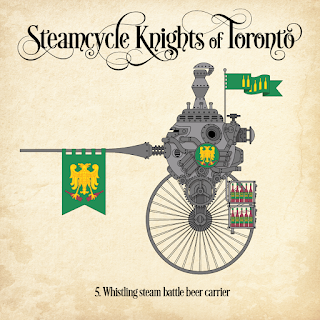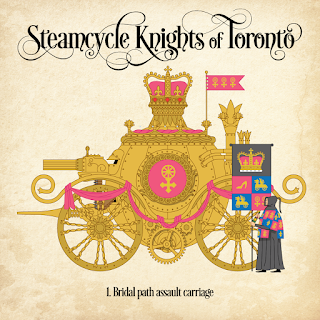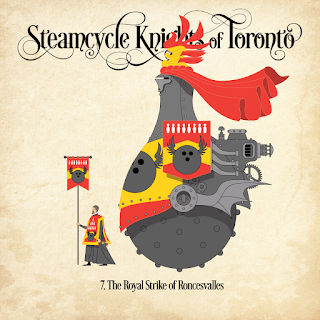CHIBA VILLAGE
Luis coughed. The smoke filled air was aggravating his lungs. His watery eyes focused on the glowing fire. He held his breath, hoping the irritation in his throat would ease, lest he draw his father’s scathing glare again. They were in the middle of an important meeting, and any affront could be seen as grounds for violence. Luis glanced around the thatched hut. The chief sat opposite Rodrigo on a small wooden stool. To Rodrigo’s right sat Friar Bartome; to his left was Angel, then Luis. To Luis’ left was a thick limbed warrior, a short, stocky man with a flat forehead, no doubt distorted by the plate the natives tied there when young. Children outside were wearing them. His arms bore tattoos in elaborate patterns. Other than his fierce expression, he was completely naked. A native elder, wizened and hunched, sat to the left of the chief, and his wife or concubine on the right.
The chief, whose name was Nocabo, wore little. There was a gold crown set atop his head, and his male member was sheathed in a gold leaf tube, instead of the usual snail shell. He wore an elaborate necklace of guanin and shells, and a cloak was draped over his broad shoulders. Tattoos covered almost his entire body, save for the palms of his hands, which were as white as Luis’ own. The man’s voice was rough and gravelly. He gestured as he spoke, looking up frequently, as if addressing the sky itself.
Bartome mouthed the cacique’s words silently. Finally the chief stopped speaking.
Rodrigo leaned over to him. He was clearly impatient. “Well? Will they help us, or not?”
“Yes,” said Bartome, “but only if we help them.”
Rodrigo considered this. “Do what?”
“Destroy their enemy. The Totenac.”
“And who are they, these ‘Totenac’? Another tribe of savages? Come on, man. We have little time.”
Father Bartome pulled a crumpled, folded piece of vellum out of his bag and laid it out on the ground. It drew curious looks from the natives. The shore was detailed, and their own route carefully drawn, presumably by Bartome. Luis noted the interior of the continent was vague. Bartome gestured with his hand. “Yes. Upriver. Enemies of the Chiba. They,” and Bartome nodded at the cacique, “thirst for revenge.”
“How many are there? Fighting men.”
Bartome exchanged words with Nocabo. “They have many warriors. But he says our weapons will be more than a match for them.”
“That did not answer my question.”
More back and forth with the chief. “Less than a thousand men. Perhaps three thousand in the city. It is not what it once was.”
“How many troops can he field to assist us in this task?”
“Four hundred.”
“Done. Tell him I agree, so long as he assists us in our fight against El Dorado.”
“Abuljar mentioned them. Our goals may be intertwined—”
The chief raised his arms in a dramatic flourish, and the fire leapt up in tandem. Silence fell, save for the soft flutter of dancing flame.
“Totenac came. Long ago. From land of great pyramids, far away,” said Nocabo solemnly. “Enslave us. Take our crops. Women. Children. Sacrifice them.” He motioned for the map to be brought over. They got up and clustered around the chief, his son moving to allow Bartome to flatten the parchment out over the ground. Bartome explained it to Nocabo, who grunted and brushed the priest aside. He thrust out an arm and pressed a finger on the map, over a lake upriver, one only partially outlined. Nocabo looked up at Rodrigo. “To Toloc.”
Bartome gasped.
Rodrigo seized upon the reaction. “What is it?”
“Toloc,” said Bartome. “Abuljar has said the name many times. He is a water god. The water god of El Dorado. I believe it has been mentioned before, by Orellana.”
Rodrigo raised an eyebrow. “They’ve been here? Ask him. Ask him if others like us have come by.”
Cacique Nocabo shook his gnarled head and mumbled.
“None that stopped. Some great ships passed in the night, lit at bow and stern. Likely lanterns. But they did not stop. Some warriors followed them, but did not return.”
Suddenly the chief became quite animated and spoke passionately in his native tongue. Flecks of spittle flew from his mouth.
Father Bartome nodded in understanding. “He wants to avenge his first wives. They were taken by the Totenac, many years ago.”
Rodrigo grunted. “Noble enough. What does he know about El Dorado. How many of them are there. Their army. Tactics. Anything that might be useful to us.”
Bartome spoke the native language quickly, which was filled with odd popping noises that stood out to Luis, to Nocabo. He accompanied his speech with sharp, expressive hand gestures. After listening to Nocabo’s response, Bartome seemed to deflate. “They are legion. He says their armies blanket the earth.”
Rodrigo’s mouth snapped into a smirk. “Exaggeration. And the gold?”
The Chief noded eagerly. “Myna. Yes. Much guanin. Take for Toloc. For Akator.”
“Akator,” repeated Bartome. He caught Rodrigo’s inquisitive look. “Their name for El Dorado.”
“Destroy Totenac, we take Akator. Burn. Take gold.” Nocabo slapped his hands together. “Done!”
“He’s a quick study,” said Rodrigo, eyeing the chief closely. The man seemed to notice every movement, no matter how slight. “Perhaps too quick. And their weapons?”
Without waiting for Bartome, Nocabo gestured at Rodrigo’s metal sword and armour, then spread his hands and smiled, as if that explained everything. The man had obviously seen Spanish weapons in action before. Luis could only wonder when. He was not being as forthright as he could be, of that there could be no doubt.
Rodrigo yanked out the blood stained charter and showed it to the Chief. “Do you see this? Eh?” He waved it at Bartome and the chief. “This document grants me the authority to conquer and subjugate all domains on the Orinoco River.”
Bartome rapidly translated into Chiba.
Rodrigo continued: “Give me your warriors. I promise to destroy these Totenac infidels. Your people will be placed under the protection of God and the King of Spain. In exchange, you will convert to the true faith, and help us conquer El Dorado.”
The cacique insisted upon smoking a pipe before issuing his decision. He’d likely snort that powder the natives were so fond of, seeking a transcendent state from which to draw wisdom. Luis wished he could partake, for he felt in dire need for wise counsel. Perhaps his father could do with it as well.
They were led out of the tent by Chiba warriors, and the tent flap shut behind them. Luis noted his father’s bottled mood and was immediately wary. The family patriarch had either decided these were worthy new allies, or was preparing to mercilessly raze and loot the village. Luis could not tell, and had no role in the decision, whatever it might be. He felt pulled along into this nightmare by family obligation, purely an observer, as if in a dream, helpless to alter the course of events yet complicit in them nonetheless. The heat flooded his mind with such delirious, unhelpful thoughts and nausea. He tried to shrug them off.
Rodrigo stopped in front of Luis and Angel and spoke under his breath, without looking directly at them. “The Totenac may prove even more useful than these savages. The natives follow the strongest. Their loyalty is to survival. If we convince them we are more powerful than El Dorado, they too will ally with us. We must be prepared to act quickly. To switch alliances, if it seems advisable.”
Angel snorted and mopped sweat from his brow. His eyes devoured native women who walked past. Near naked women were gathering in the center of the village. “We don’t need these shits.”
Rodrigo raised an eyebrow. “No? We’ve already lost nearly a third of our men. Half are sick. Do you think we can take and hold a city with a few dozen half-starved mercenaries?”
“Cortez did. Their weapons are mere toys.”
“And he was far more clever than you,” observed Rodrigo cuttingly. “If you want to ever lead this family, you have learn to us your brain, not your gut.” And with that he walked off to speak to the sergeant.
“I’d show these animals,” said Angel to Luis. “They need to be managed with an iron fist. Mercy is alien to infidels. They’d see it as weakness.” His eyes gleamed. Luis thought his brother seemed feverish. “He won’t be around for ever, and then I will be in charge and all of this coddling will stop. Mark my words.” And he pulled out his flask and took a swig, before turning to the nudity on display.
Luis said nothing. He knew what Spanish rule in Hispaniola had wrought: of a population over one hundred thousand in 1492, there were now less than five hundred. They’d committed mass suicide in response to the onerous, impossible demands for gold imposed by Spanish overlords. That and plague had destroyed their people. Fortunately, the natives here, the Chiba, knew nothing of such matters, or the Spaniards would have been received with arrows rather than open arms.
Receiving the Word of God seemed poor compensation for extermination.
While they waited, the Chiba women performed a ritual dance, the small shells tied to their wrists, ankles, and waists chattering in tandem with their hypnotic movements. They were short but well formed, with full breasts and richly coloured skin. Luis watched them as if in a daze, entranced by their brazen nudity. He asked Bartome if this sort of display was common.
Bartome considered the question. “They are less inhibited than we, more in touch with their inner nature,” he said. “They do not have possessions or property, nor do they lust for gold as we do. They live as Adam and Eve.”
Luis looked down towards the brigantines at the bottom of the hill, where the majority of the mercenaries waited. A few had left the ships and were straining to get a better view of the dancing native women. Rodrigo had forbidden them from leaving the ships, fearing an unnecessary confrontation over the females. Twenty of Rodrigo’s most trusted men, former soldiers who worked as overseers in Trinidad on the family’s estate, had accompanied them into the village. They were heavily armed, in case of trouble. These were fierce men, used to sating their desires on the native workers, brutes who killed without qualm. They stood between the village and the ships, weapons at the ready. Luis saw their cold, eager eyes and imagined they were hoping for an excuse to unleash havoc. If the natives had seized them as hostages, they were to burn the entire village down and slaughter the inhabitants to the last man, woman, and child, whatever the cost in ammunition.
“Yet not one over fifty,” observed Luis of the natives.
An hour later, Nocabo issued his decision, and the war drums sounded. Thoom! Thoom! THOOM!
Two hundred fierce, tattooed Chiba warriors clambered into their sleek war canoes and set off into the river, cheered on by their ululating women. Luis marveled at the natives’ ability to drop everything and set off on a moment’s notice. They were every bit as reckless and opportunistic as the Spanish. But the natives were eager and enthusiastic, fired not by greed but by rage and thirst for bloody revenge, as all had suffered at the hands of Totenac oppression and lost family members to them. It was all the Spanish could do to keep up in their less maneuverable brigantines.
The fleet glided through a wall of smoke blowing off fields along the winding river, vegetation burnt by stone faced natives. Whether they were envious of the adventure the young men were embarking on, appalled by the foolishness displayed, or felt nothing at all, it was impossible to tell.



